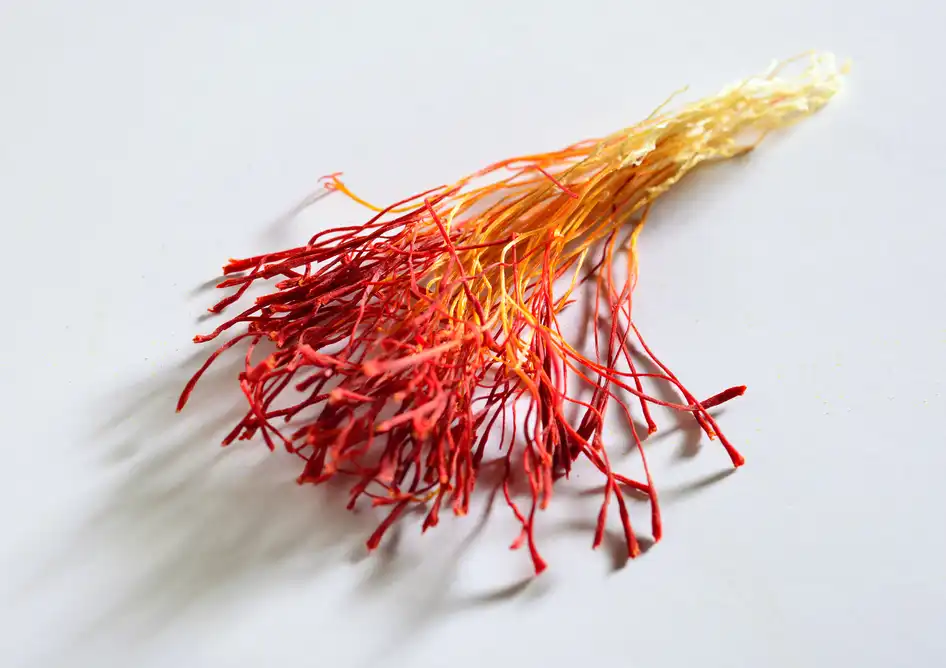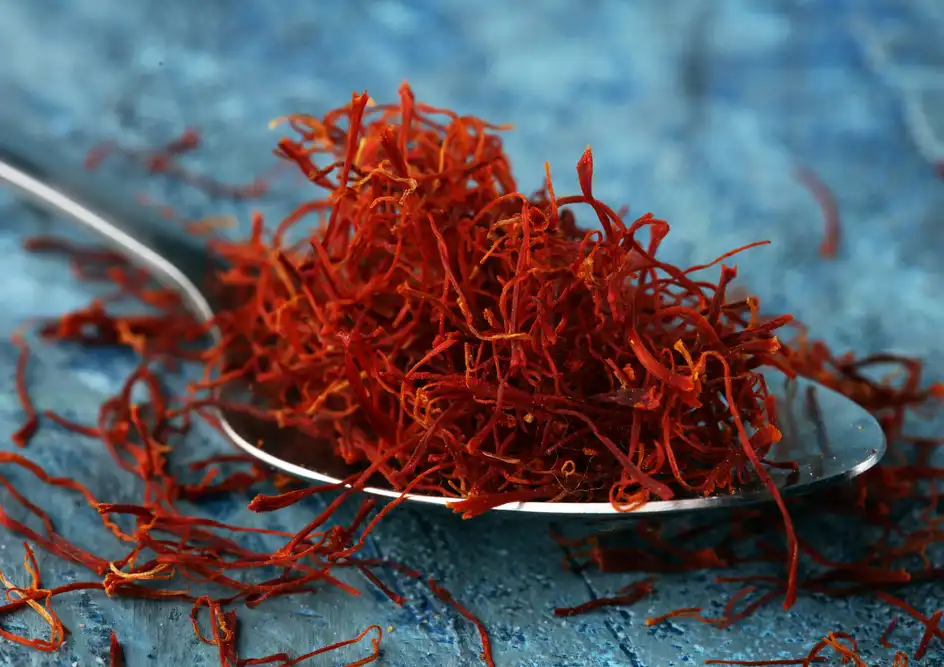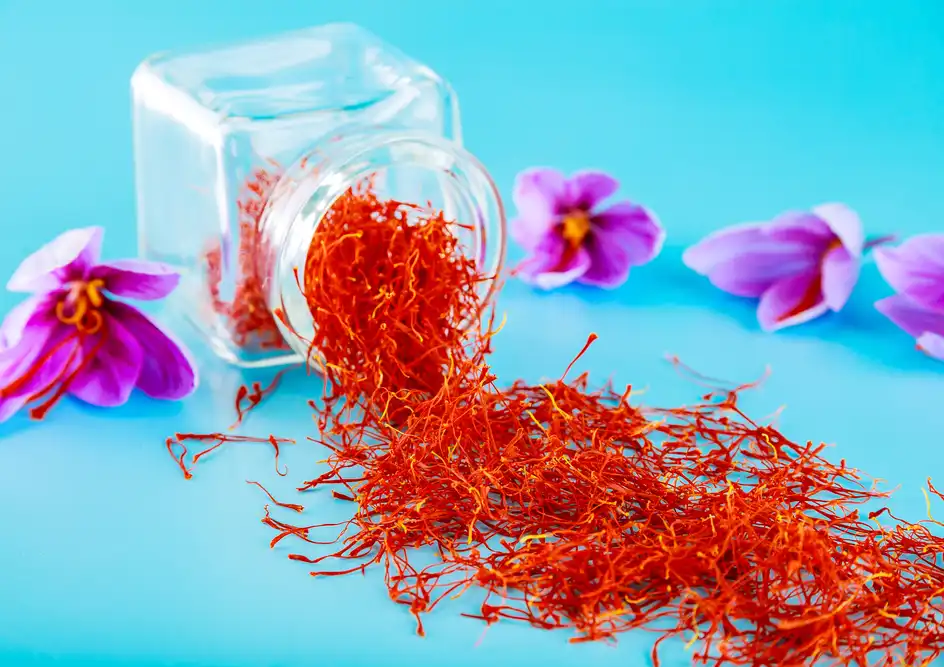Saffron, frequently referred to as the "golden spice," encompasses more than its vibrant color and distinct flavor. The historical journey of it showcases a story intertwined with medicinal expertise and cultural importance. In addition to its culinary uses, saffron is a subject of great interest in the field of mental wellness due to its potential as a natural antidepressant.
Saffron has long held a distinguished position in different parts of the world, being esteemed not only for its culinary prowess but also for its therapeutic qualities. Derived from the delicate flower known as Crocus sativus, saffron threads have endured the test of time, establishing themselves in both traditional medicine and folklore, primarily recognized for their ability to uplift the soul and alleviate mental burdens.
Prepare yourself for a comprehensive exploration into the profound potential of saffron as a natural remedy for the intricacies of depression. This study will provide insights into its properties, impact on mental health, and contribution to overall well-being. Read More About What Is Saffron
Introduction to Saffron
Saffron represents a symbol of cultural opulence, having been held in high regard for centuries due to its distinctive characteristics and versatile uses. Derived from the Crocus sativus flower, this valuable spice has surpassed culinary limitations to become a revered element in traditional medicine and rituals.
Across different cultures throughout history, saffron has been highly regarded, praised not only for its unique flavor but also for its medicinal attributes. Its origins trace back to ancient Persia, where it served not only as a culinary spice but also as a remedy for various health conditions such as depression, insomnia, and digestive disorders.
The processes involved in cultivating and harvesting saffron necessitate meticulous care and attention. The Crocus sativus flower produces only a limited number of saffron strands, adding to its scarcity and esteemed reputation. The harvest entails a meticulous process of hand-picking the delicate stigmas, referred to as threads or strands, which are subsequently dried to maintain their vibrant color and potent flavor.
Beyond its culinary applications, saffron holds a revered place in traditional medicine. It has been historically prescribed as a tonic for various health conditions due to its purported anti-inflammatory, antioxidant, and mood-enhancing properties. Its documented usage in ancient texts and practices highlights its significance in treating ailments related to mental health, making it an intriguing subject in the realm of natural remedies for depression and anxiety.
Furthermore, the journey of saffron is intricately linked with cultural rituals and ceremonies, where it has served as a symbol of abundance, immaculateness, and fecundity. Its deep-rooted significance in diverse societies across different time periods is emphasized by its presence in various religious ceremonies and traditional practices.
In essence, the incorporation of saffron into the domains of gastronomic pleasures and therapeutic uses heralds the initiation of a captivating expedition, surpassing the realms of mere flavor and fragrance, venturing into the profound recesses of cultural legacy and comprehensive wellness.

Understanding Depression
Depression, a widely prevalent and intricate mental health condition, encompasses a range of emotional and physiological difficulties that significantly affect an individual's everyday existence. It is not simply a momentary bout of sadness but an enduring condition that interferes with cognition, affect, and behavior, frequently resulting in an overwhelming feeling of hopelessness and despondency.
This complex condition presents itself in various forms, including major depressive disorder (MDD), persistent depressive disorder (PDD), bipolar disorder, seasonal affective disorder (SAD), and postpartum depression, among other manifestations. Each form presents unique challenges, yet they collectively contribute to a significant burden on mental health worldwide.
The symptoms of depression encompass far more than just a low mood. They might include a persistent feeling of sadness or emptiness, loss of interest or pleasure in once-enjoyable activities, changes in appetite or weight, sleep disturbances, fatigue, difficulty concentrating, feelings of worthlessness, and recurrent thoughts of death or suicide.
The impact of depression extends beyond the individual, encompassing relationships, work or academic performance, physical health, and overall quality of life. Despite being prevalent, this condition is frequently misunderstood or stigmatized, resulting in underdiagnosis and undertreatment.
The development of depression is influenced by various factors, including genetic predispositions, biochemical imbalances in the brain, life events, chronic stress, medical conditions, and specific medications. Gaining a thorough understanding of these intricate interactions aids in formulating comprehensive treatment strategies.
Treatment for depression often involves a multifaceted approach, which may include psychotherapy, medication, lifestyle modifications, and support networks. Additionally, emerging research explores alternative and adjunct therapies, such as mindfulness, exercise, dietary changes, and the utilization of natural remedies like saffron.
Through the cultivation of awareness, elimination of stigma, and provision of comprehensive support, society can make substantial progress in empowering individuals to seek assistance and navigate the path towards mental well-being. It is essential to acknowledge that depression is a legitimate illness, and through compassion, comprehension, and appropriate interventions, individuals can effectively navigate and conquer its hardships.
Gaining a comprehensive understanding of the complexities of depression is an essential measure in destigmatizing the condition and fostering a more empathetic and supportive environment for individuals grappling with mental health challenges.

Saffron and Its Properties
The therapeutic potential of saffron is derived from its diverse range of bioactive compounds, particularly safranal, crocetin, and crocin. These constituents play a role in the spice's distinct aroma, flavor, and, most significantly, its alleged health advantages.
- Safranal: This compound, responsible for saffron's unique fragrance, exhibits potential antidepressant effects. Studies suggest that safranal might modulate neurotransmitters in the brain, such as serotonin, dopamine, and norepinephrine, contributing to its mood-enhancing properties.
The potential impact of safranal on neurotransmitters like serotonin, dopamine, and norepinephrine is indicated by research on its antidepressant effects. These neurotransmitters have pivotal functions in the regulation of mood, emotions, and overall mental well-being. The modulation of neurotransmitter levels by safranal may contribute to its mood-enhancing properties, potentially providing relief for symptoms of depression and promoting a more positive emotional state.
- Crocetin: Known for its antioxidant properties, crocetin showcases potential in reducing oxidative stress, which plays a role in various health conditions, including depression. Its ability to modulate neurotransmitters and enhance neuroprotective mechanisms highlights its significance in mental health.
The primary function of crocetin lies in its antioxidant properties, which play a crucial role in countering oxidative stress. This stress can have detrimental effects on brain health and is linked to mental health disorders such as depression. Furthermore, crocetin displays the capability to modulate neurotransmitters, potentially impacting the levels of serotonin and dopamine. The significance of this modulation, coupled with its neuroprotective mechanisms, is underscored in the realm of mental health as it has the potential to mitigate the impact of oxidative damage on brain function.
- Crocin: This compound contributes to saffron's vibrant color and holds promise in various therapeutic applications. Studies indicate that crocin may possess antidepressant and anxiolytic properties, potentially impacting neurotransmitter systems involved in mood regulation
Antidepressant and Anxiolytic Properties: Studies suggest that crocin might possess both antidepressant and anxiolytic (anxiety-reducing) properties. Its potential impact on neurotransmitter systems involved in mood regulation, such as serotonin, suggests a role in uplifting mood and reducing anxiety. Crocin's mechanisms, although not fully elucidated, indicate its potential as a natural compound that could positively influence mental well-being.
The combination of these compounds renders saffron a captivating topic for scientific investigation, specifically in the domain of mental well-being. Additional research is needed to fully understand the mechanisms of action, but initial findings indicate that these components may provide a natural alternative for managing depression and related mood disorders.
Furthermore, the bioactive compounds found in saffron demonstrate anti-inflammatory, antioxidant, and neuroprotective characteristics, thus presenting potential advantages that extend beyond mental well-being. Ongoing research on saffron's effects on different physiological systems, such as cardiovascular health, cognitive function, and eye health, is continuously broadening its potential as a versatile therapeutic agent.
The cultivation and processing methods significantly impact the concentration and potency of these compounds in saffron. Therefore, ensuring the quality and authenticity of saffron products is paramount to harnessing its potential health benefits effectively.
Gaining comprehension of the complex interaction between saffron's constituents and their potential impact on the body reveals insights into the spice's diverse therapeutic properties. Ongoing research continues to explore the intricacies of saffron, revealing its potential as a natural remedy with a range of health-promoting qualities, including its possible efficacy as a natural antidepressant.

How Saffron Affects the Brain
The researchers are intrigued by saffron's impact on brain chemistry, as it is renowned for its culinary allure and therapeutic potential. Gaining insight into the impact of saffron on the brain's neurotransmitter systems illuminates its potential contribution to mood regulation and mental well-being.
- Dopamine and Serotonin Modulation: Research indicates that saffron may affect neurotransmitters like dopamine and serotonin, crucial players in regulating mood, emotions, and cognitive function. These neurotransmitters play pivotal roles in determining one's emotional state, pleasure perception, and overall mental balance. Saffron's ability to modulate the levels of these neurotransmitters suggests its potential in positively influencing mood and emotional stability.
- Saffron has the potential to affect dopamine levels in the brain. Dopamine functions as a neurotransmitter that is linked to pleasure, reward, motivation, and mood regulation. According to studies, saffron has been shown to potentially regulate dopamine levels, which could contribute to enhancing mood and promoting a sense of well-being. Dopamine has a vital function in the regulation of emotional responses, and if saffron were to modulate it, it may help alleviate symptoms of anxiety and depression.
- Serotonin: Similarly, saffron is believed to impact serotonin, another neurotransmitter crucial in regulating mood, emotions, and anxiety. Serotonin imbalance is often linked to anxiety disorders and depression. Saffron may potentially enhance serotonin levels or affect its reuptake, contributing to a more balanced mood and potentially reducing symptoms of anxiety.
- Neuroprotective Mechanisms: Beyond neurotransmitter modulation, saffron demonstrates neuroprotective properties. It may help safeguard brain cells from damage caused by oxidative stress and inflammation, both of which are implicated in various neurological disorders and mental health conditions. By exerting neuroprotective effects, saffron could potentially contribute to preserving brain health and function.
- Enhancing Brain Function: Some studies suggest that saffron might also have cognitive-enhancing effects. It is believed to aid in improving memory, cognition, and attention span. While the exact mechanisms are still under investigation, these findings hint at saffron's potential in supporting overall brain health and cognitive abilities.
The interplay between the bioactive compounds in saffron and the neurotransmitter systems in the brain indicates its potential as a natural substance that could have a positive impact on mental health. The significance of conducting further research into saffron's effects on brain health and its potential role in promoting mental well-being is underscored by its ability to modulate neurotransmitters, provide neuroprotection, and potentially enhance cognitive functions.
Although saffron shows potential, it is crucial to exercise caution when considering its use in mental health. Further comprehensive research is imperative to fully comprehend the mechanisms of action, establish the optimal dosage, and evaluate the effectiveness and safety of its application for diverse mental health disorders. Nevertheless, the initial discoveries concerning the effect of saffron on the brain provide a glimpse into its potential as a natural aid in promoting mental well-being. Read more about Saffron Benefits For Mental Health

Saffron Affects On Stress Treatment
Saffron, renowned for its culinary and medicinal value, has emerged as a subject of interest in stress management and treatment due to its potential calming and stress-relieving properties.
- Research indicates that saffron may contain compounds that have a soothing impact on the nervous system. These properties are believed to aid in the reduction of stress responses within the body, thereby promoting a state of relaxation and tranquility.
- Impact on Stress Hormones: Research indicates that saffron may influence the levels of stress-related hormones, such as cortisol. Cortisol, often referred to as the stress hormone, is released in response to stressors. Saffron's potential to modulate cortisol levels might contribute to reducing stress and its physiological effects on the body.
- Saffron possesses compounds that exhibit strong antioxidant and anti-inflammatory properties. The presence of stress frequently results in heightened levels of oxidative stress and inflammation within the body, which can have detrimental effects on overall health. The potential of saffron to mitigate oxidative stress and inflammation may contribute to alleviating the physiological impacts of stress.
- Mood Enhancement and Stress Reduction: Additionally, saffron's impact on neurotransmitters associated with mood regulation, such as serotonin and dopamine, could contribute to its stress-relieving effects. By modulating these neurotransmitters, saffron might help in improving mood and reducing feelings of stress and anxiety.
Further comprehensive studies are required to fully comprehend the mechanisms and effectiveness of saffron in stress alleviation, despite its promising potential in stress management. It is essential to comprehend the ideal dosage, duration of usage, and possible interactions with other medications or conditions in order to safely and effectively utilize it as a stress-relieving remedy.
The potential of saffron in stress treatment represents a promising approach in utilizing natural interventions for stress management. Its diverse range of properties, which include calming effects, modulation of neurotransmitters, and antioxidant actions, position saffron as a compelling candidate for promoting relaxation and mitigating the adverse impacts of stress on overall mental and physical health.

Effects of Saffron on Sleep Quality
Saffron's potential influence on the quality of sleep has attracted attention due to its historical utilization in traditional medicine and its promising therapeutic characteristics.
- Sleep Regulation: According to certain studies, saffron may potentially contribute to the enhancement of sleep patterns. Sleep disturbances, such as insomnia or poor sleep quality, can significantly impact overall health and contribute to various health conditions. Saffron’s potential to regulate sleep might involve its influence on neurotransmitters associated with sleep-wake cycles and relaxation.
- The presence of certain compounds in saffron is believed to have calming and relaxing effects, which may contribute to enhanced sleep quality. These properties may contribute to reducing stress, anxiety, or restlessness, thereby promoting a state of relaxation that is conducive to improved sleep.
- Impact on Sleep Disorders: The impact of saffron on sleep disorders has been the subject of research, which has yielded promising results in terms of its effects on specific sleep disorders such as insomnia or sleep disturbances related to other health conditions. Additional investigation is necessary, however, initial findings indicate that saffron may have potential advantages in the management of specific sleep-related problems.
- Possible mechanisms: The capacity of saffron to regulate neurotransmitters, such as serotonin and dopamine, known to impact mood and relaxation, may play a role in its impact on sleep quality. Furthermore, the anti-inflammatory and antioxidant properties of it may assist in establishing a more favorable setting for undisturbed sleep by decreasing potential disruptions arising from inflammation or oxidative stress.
Understanding saffron's potential in improving sleep quality is an ongoing area of research. While promising, more extensive and controlled studies are necessary to confirm its efficacy, optimal dosage, and long-term effects on sleep patterns and overall health.
In summary, the potential impact of saffron on sleep quality is promising. However, additional research is needed to fully understand its mechanisms and effects on various sleep disorders. However, initial research indicates that saffron may present a natural method to potentially improve sleep quality, offering optimism for individuals in search of alternatives to address sleep-related concerns.

Recommended Daily Intake of Saffron
According to multiple sources and recommended guidelines, a moderate consumption of saffron is often advised due to its potential health benefits, while excessive intake should be avoided. The typical daily recommended intake of saffron is usually between 20 to 30 milligrams, roughly equivalent to three threads per day. It is recommended to use this moderate dosage in order to utilize the potential therapeutic properties of saffron while staying within safe limits. Nevertheless, it is important to consider that personal tolerance and responses to saffron can differ, and seeking guidance from a healthcare professional or nutritionist prior to incorporating saffron into one's diet is recommended, particularly for individuals with specific health conditions, allergies, or those taking medications, in order to ensure safe and effective usage.
The recommended daily intake of saffron, averaging about three threads per day or approximately 20 to 30 milligrams, is a general guideline often suggested to strike a balance between harnessing its potential benefits and avoiding potential adverse effects associated with higher doses.
To conclude, the investigation into saffron's potential as an anti-anxiety remedy reveals promising prospects for mental health support. Studies demonstrating its anxiolytic properties and impact on neurotransmitters such as serotonin and dopamine suggest a potential role in the relief of symptoms associated with anxiety. The potential of saffron in managing stress and anxiety is further supported by its ability to modulate stress-related hormones, like cortisol. Nevertheless, additional rigorous clinical trials are required to definitively establish saffron's effectiveness, optimal dosage, and safety as an intervention for anxiety. Prior consultation with healthcare professionals is essential in order to safely and effectively integrate saffron into anxiety management strategies. The cautious exploration and ongoing scientific investigation of saffron as a potential natural ally in reducing anxiety is necessary to fully understand its role in promoting mental well-being.








